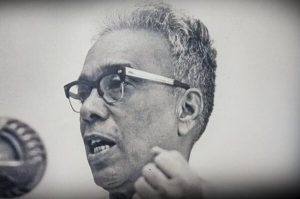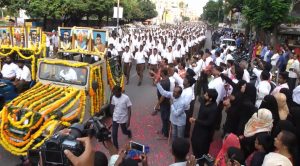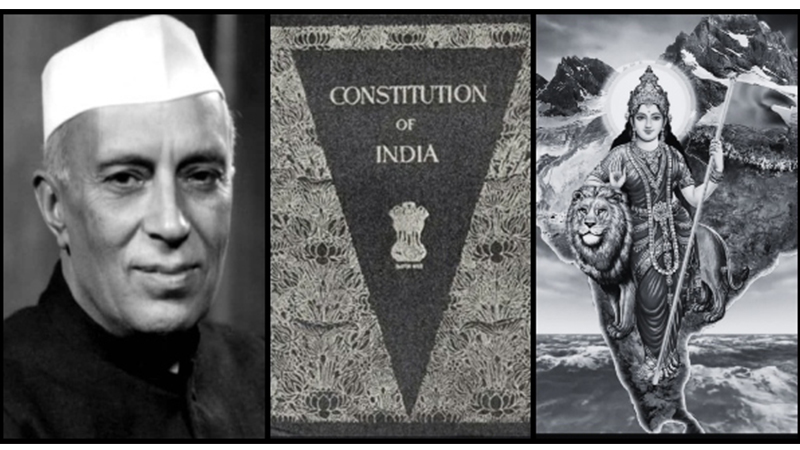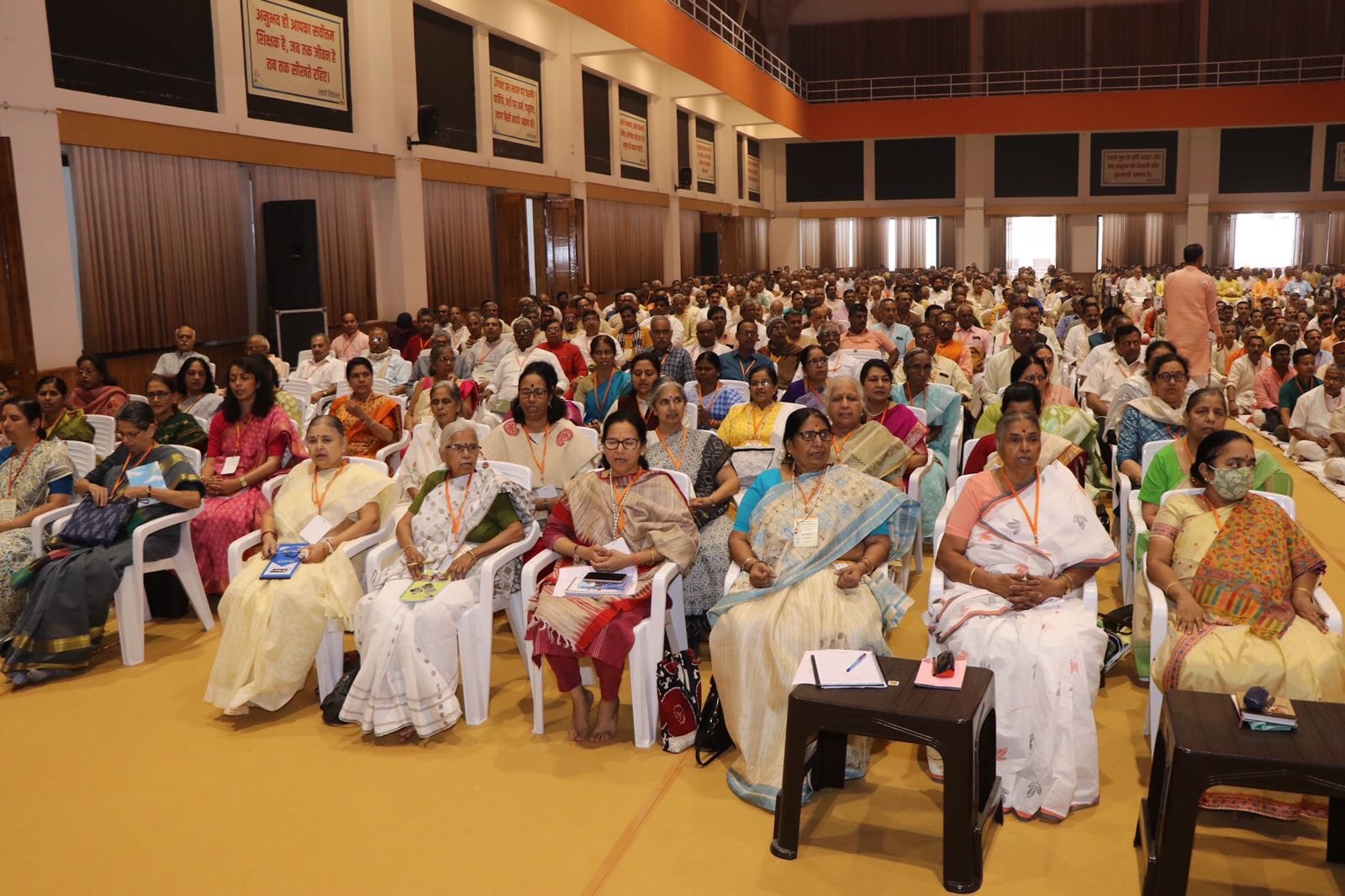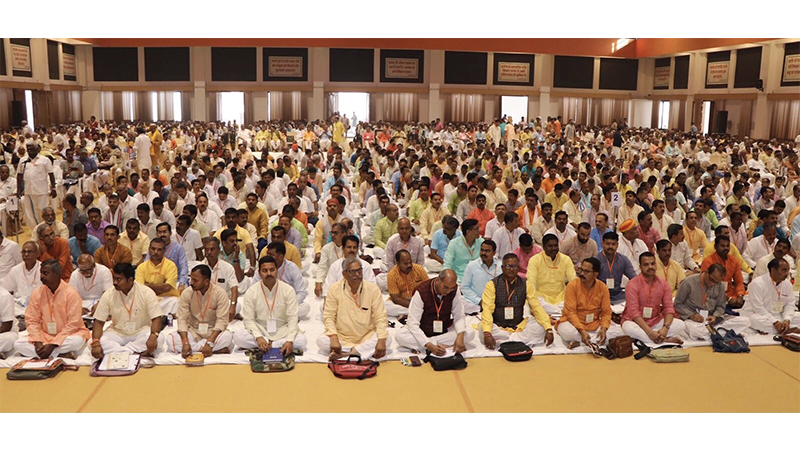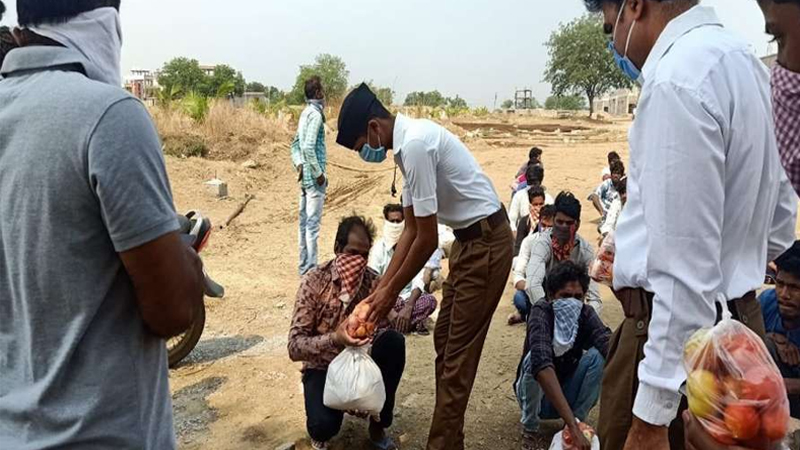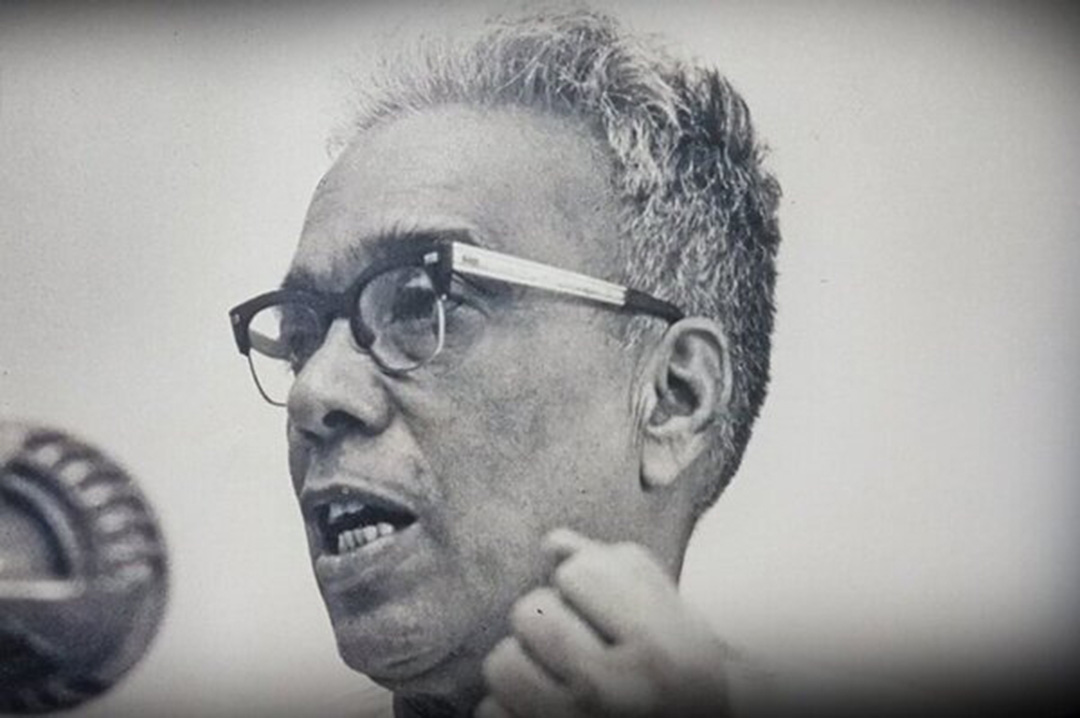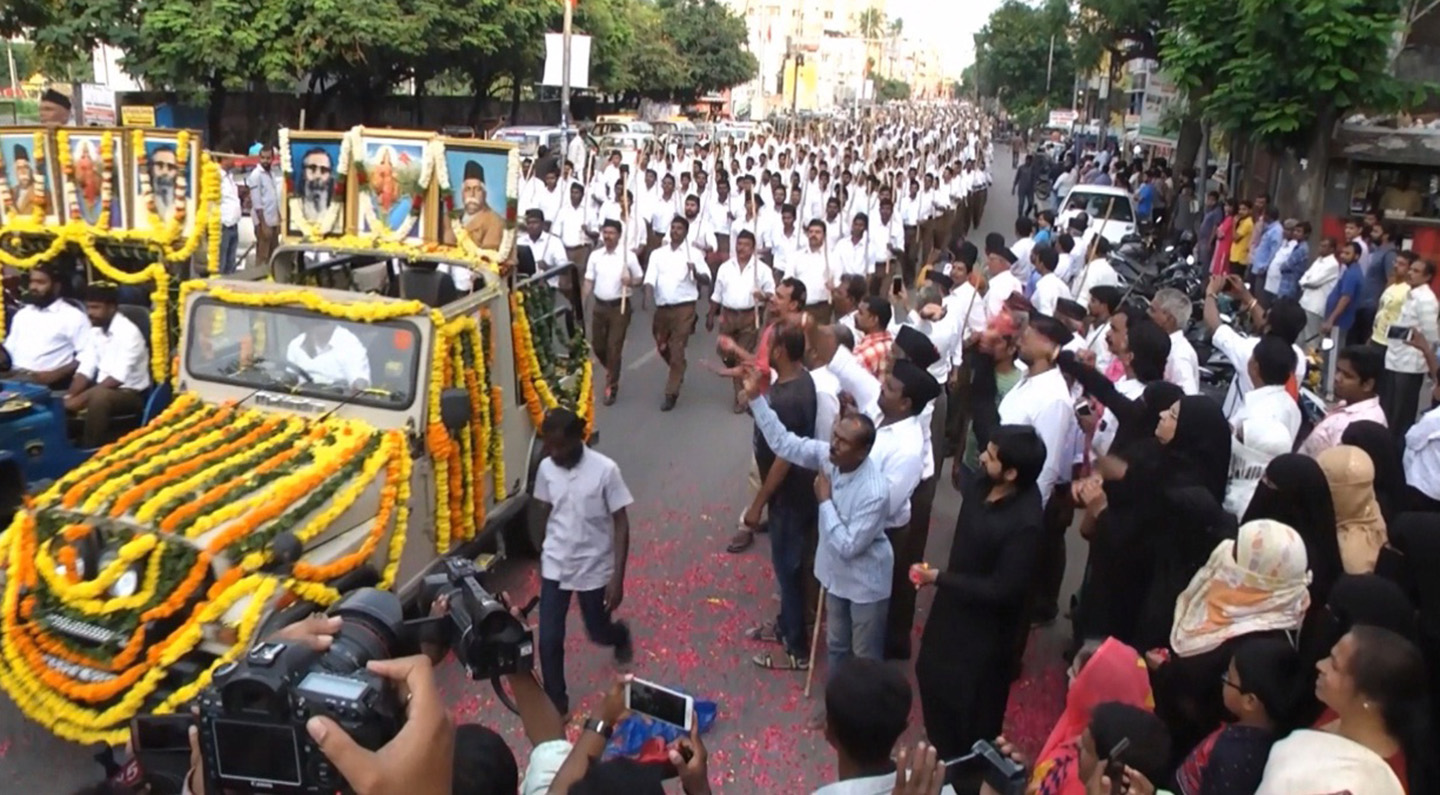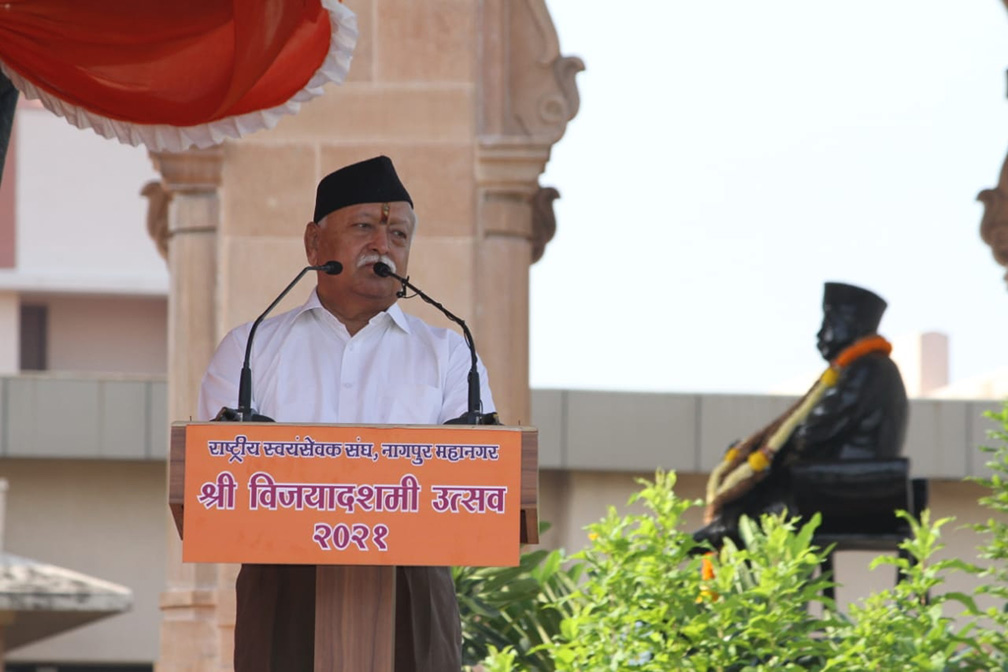Lesson from Hindu History
Updated: February 1, 2023 14:16
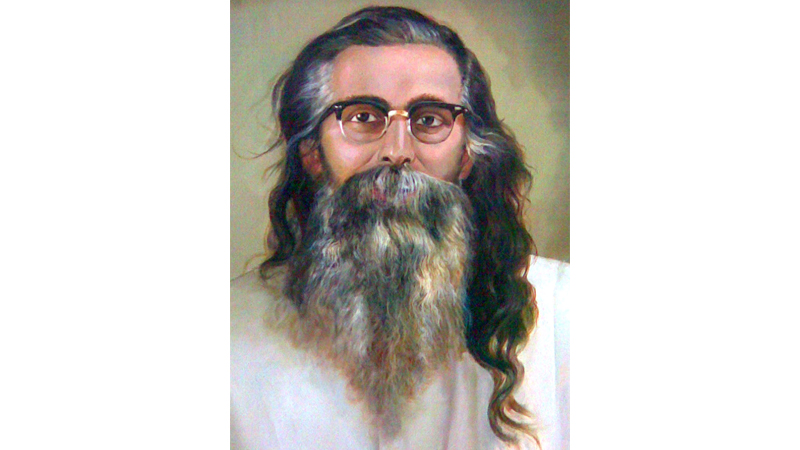
From the speeches of Shri Madhavrao Sadashivrao Golwalkar, the second Sarsanghachalak of Rashtriya Swayamsevak Sangh (RSS), from 1940-1973.
Lesson from Hindu History
The following is a talk given by Paramapoojaneeya Sri Guruji Golwalkar in the Sangh Shiksha Varg (Officers Training Camp) of the Rashtriya Swayamsevak Sangh held at Nagpur, on Thursday, May 7,1942. This was delivered when the country was still under the thraldom of British rule. Though more than six decades have gone since he gave this clarion call to the Hindu Nation to shun the inherent weakness of disunity and lack of national consciousness which has brought its downfall, the condition of the Hindus in general remains the same. There is no salvation to the Hindu Nation unless Hindus themselves wake up and rise like a lion.
Lesson from Hindu History
You must be aware that, like in Nagpur, we are having our Officers Training Camp at Pune also, where I had been since its opening and have returned only yesterday. I was fortunate to meet our workers there, and now I shall have the pleasure to meet our workers from many more provinces, who have gathered here. I shall be particularly glad to meet new Swayamsevaks and workers from new branches that must have sprung up during the year. Perhaps I may know them through correspondence only, but now that they are here, I shall try to meet them personally. I am afraid, I shall not be able to spend a major portion of my time in this camp as I shall be required to visit other centres also. But I am here and I shall be required to utilizing whatever time I can snatch, to form new acquaintances and renew old ones.
The Downfall of the Hindus
The very first thing that strikes us about ourselves is that we all belong to a great people called Hindus numbering 30 crores, who dwell in this land of Bharatvarsha and on whose account the country is known as Hindustan. The Hindus were once one of the most powerful and leading nations of the world, and covered with all glory and greatness. In the past, so long as no foreign power polluted the soil of this land, we lived in peace and plenty. We had a galaxy of mighty empires, unequalled religious philosophies, and enduring social fabrics. We had great thinkers and statesmen, heroes and warriors, among us, with great armies at their command. But how is it that the same people today have lost all this power, glory and freedom? Many thinking minds attribute the fall and decay of the great Hindu nation of the past to various causes that strike them. Some of them say that the foreigners were too powerful for us to defeat and were well equipped with men and material. They were armed with superior weapons and had more powerful armies, well trained and well-disciplined than the Hindu forces. In short, they believe that our downfall was not due to our own inherent weakness and degradation but to the superior forces of the foreigners who descended upon this land to destroy our way of life.
Taste of the Hindu Might
But we reach a different conclusion if we take into consideration two glaring instances from our history, one of them being the first large scale and systematic invasion of Hindustan attempted by the so called world conqueror, Alexander. The Greek warlord tried to invade Hindustan with his powerful army. He reached as far as the western bank of Sindhu with a view to plunder this land of gold. But Porus, a small Hindu King on the frontiers of Hindustan, barred the way of the invaders and successfully threw back the hordes of invading Greeks. There is incontrovertible evidence to prove that Porus inflicted a major defeat upon Alexander. But the truth has been hidden from us by foreign writers and historians. They were not prepared to accept that Alexander’s expedition petered out. How could the European historians admit that a king of their own white race was defeated and put to flight by a coloured Hindu chief? On the other hand, they came out with a version that the Greek forces defeated Porus and were about to move across the River Sindhu. But it never happened. After the first encounter with Porus, Alexander had to give up his grandiose plan of invasion and make straight for Greece via Iran. But the foreign authors were ready with their interpretations. According to them, hands of Alexander were forced by the sudden mutiny among his army, which wanted to return to Greece immediately. But this too never happened. Alexander or his army never returned to Greece. Instead they decided to settle down into the green and beautiful meadows of Iran, while Alexander found his grave on Iranian soil.
It is difficult to reconcile oneself to the distorted and fabricated version of the invasion as given by foreign writers. We only learn by heart what we are taught in school textbooks. But we must be able to judge facts and weigh them for ourselves and arrive at proper conclusions. Soon after the death of Alexander, an invasion of Hindustan was again attempted by one of his lieutenants General Seleucus Nicator, but he was so very badly mauled by Emperor Chandragupta that, taking a lesson of his lifetime from his crushing defeat, Seleucus made peace with Chandragupta and offered his own daughter to him in marriage.
Seleucus had to bow before the mighty Hindu Emperor because it was impossible for the invading forces to take a stand against the powerful Hindu armies of Chandragupta. But then how could it happen that, after sometime in the History of Hindustan, a new and dark chapter was opened by the Muslim aggression, which succeeded in pushing back the same powerful Hindus and obtaining a firm foothold on the soil? Muslims were in fact, less powerful and ill equipped in comparison with their predecessors, the Greeks. Why then the Hindus crumbled before the Muslim onslaught and lost their freedom? You will find the answer to the above question in another historical incident of peculiar significance – that is, the dramatic episode of Maharaj Prithviraj.
Prithviraj, as we all know, was the last Hindu Emperor of Hindustan, who had a great and heroic army and a glorious empire. Mohammed Ghori tried for more than a dozen times in succession to invade the Hindu Empire, and every time the Muslim invader was completely beaten back and put to flight. Several times Ghori was personally captured by Prithviraj, but let go on account of Prithviraj’s generosity. But the end of Prithviraj’s brilliant career was full of drama and pathos. This powerful Hindu Emperor fell victim to a petty family feud between himself and Jaichand Rathod, his father-in-law, who did not relish the procedure by which Prithviraj took away his daughter, Samyukta, and married her. Individual or family feuds are, as a rule, a common feature of human society everywhere, even outside this country. But they were not allowed to assume a proportion that might prove detrimental to the interest of their community. These feuds and bickering are easily forgotten and people again unite as one man to face a common danger if and when it comes. People forget their quarrels, close their ranks and make it common cause to invade the peoples of another race for the glory of their own race. How is that we Hindus alone carry these feuds to such extent that the result is utterly disastrous for our own national well-being? Why do our petty feuds assume such a fatal fall? What is the wrong with our body politic? Let alone a man in the street, even a responsible man of kingly status like Jaichand has no national or racial consciousness that compels a man to place individual interests or personal honour in the background, giving priority to national interest and honour. And hence, he was prepared to avenge his daughter’s marriage without scruples. Jaichand could not imagine that by inviting a foreign power to help him against Prithviraj, he was not harming Prithviraj but the very Hindu Nation itself. Whatever his differences with Prithviraj, Jaichand should not have stooped down so low as to invite the enemy of the Hindu Empire and culture to avenge the marriage of his daughter, a purely family affair. He ought not have afforded an opportunity to a foreigner to intervene in the matters that could have been settled or avenged in other ways that he could resort to. He could have dethroned Prithviraj with the help of other Hindu Kings and replaced some other emperor, which would not have ruined the Hindu empire. But he fell a victim to the intense passions of hatred and vengeance and forged himself into a treacherous weapon into the hands of Ghori and was rightly served.
Sovereignty of Nation Surrendered
Thus, Muslims, the foreigners, came to dominate this country by our own help and not by the dint of their strength. We were suffering from an acute want of national feelings and hence we were divided and torn among ourselves. How then could we possibly present a united front to foreign aggression? Utter lack of this feeling of Hindu national solidarity caused and hastened our downfall. A mere glance at our history of over thousands of years in the past will again and again prove the truth of the contentions. If we have been throughout this period under one foreign domination or other, we have to thank no one else but ourselves. Whenever an effort was made to throw this domination overboard, it was our own Hindu brethren that forestalled the effort. Again, I should like to quote from history instances in support of my contentions. East India Company, as you know, sent its agents here for the purpose of carrying on trade and commerce in the golden land. Its directors in England had a keen and covetous eye upon the incalculable wealth of the Hindus then. They were always clamouring for money, money and more money. It was, of course, an ordinary private trading company without anything to do with the government. It was none of its concerns to maintain large armies and conquer countries. But as the company wanted money it raised armies to loot people and exploit the financial resources of the country.
The company collected money from us and raised the armies and then turned the same weapon against us. How could it happen that an ordinary trading company could conquer this vast country and dominate over its great and ancient people? It could happen because we were blind and indifferent to the national danger that was steadily eating our vitals. Not only this, but there are examples that many of our rich Hindus financed the nefarious activities of the company for their personal gains without the thought of the fatal effect that their actions might produce upon the nation and its people. All that these selfish factors got in the end was their own destruction. We not only allowed the foreigners on this soil, but also helped them to dominate over us. We valued personal interest and honour more than that of our country and people. Even our leading men did not try to uphold the interest and honour of their country even at the cost of their own self and their honour. Herein lies the root cause of our slavery and consequent downfall during the last one thousand years. We, in fact, never lacked in armies and weapons of war that were always superior to enemy forces. But ideas were totally perverted. Our indifference was so much that we never bothered as to who ruled over us. We forgot to distinguish between a foreigner and a ruler of our own race and culture. To us any king was a divine personality whatever race or religion he may belong to. These false conceptions were ingrained in our blood and played havoc with our social and national life.
Want of consciousness of fundamental Hindu Unity
Foreign travellers have remarked off and again that the Hindus, though brave, are effeminate of character. They cannot fight on their own initiative or for their own nation. Some French traveller was of opinion that often a few thousand well-trained soldiers under an efficient commander could easily overrun the whole of this vast sub-continent. Hindu could fight bravely but only when it was a fight amongst themselves. But they could not present a united front to hurl back the foreign invaders. The unbelievable historical fact about Bakhtiyar Khilji that he went to conquer all Bengal from Delhi with hardly eighteen horsemen speaks for itself.
And unfortunately, these conditions are obtainable up to even today. We are never wanting in learning, wealth and bravery. And yet, it was due, as I have said so often, to the want of the consciousness of fundamental Hindu unity, the fact of our being one organic whole. We never realized the secret of organized strength and hence we lost our freedom and peace though always numerically superior to any invading force, for want of organized life. We had no use of our great Hindu majority which otherwise could have been our unique asset. Do we not find that, even in provinces where the Hindus are in overwhelming majority, Hindus live under a constant dread of a handful of Muslims? Even a solitary Muslim goonda feels confident that he can terrorize the whole Hindu population of a place. How pitiable and how shameful for a great people with a population of thirty crores? Every Hindu feels that he is alone and single-handed though the truth is otherwise. This feeling is responsible for the atmosphere of dread and cowardice prevalent in our midst. It has made us wretched and degenerated to such an extent that we are not ashamed to connive at the atrocities committed under our very nose just to save our skin. Not only that our elders do their best to prevent the younger section from acquiring courageous attitude in this matter, but they are also always discouraged from doing anything for the defence of their honour. It should be our effort therefore, to fight out these unworthy and perverted ideas and replace them by healthy and proper outlook, if we have to put a stop to our downfall.
